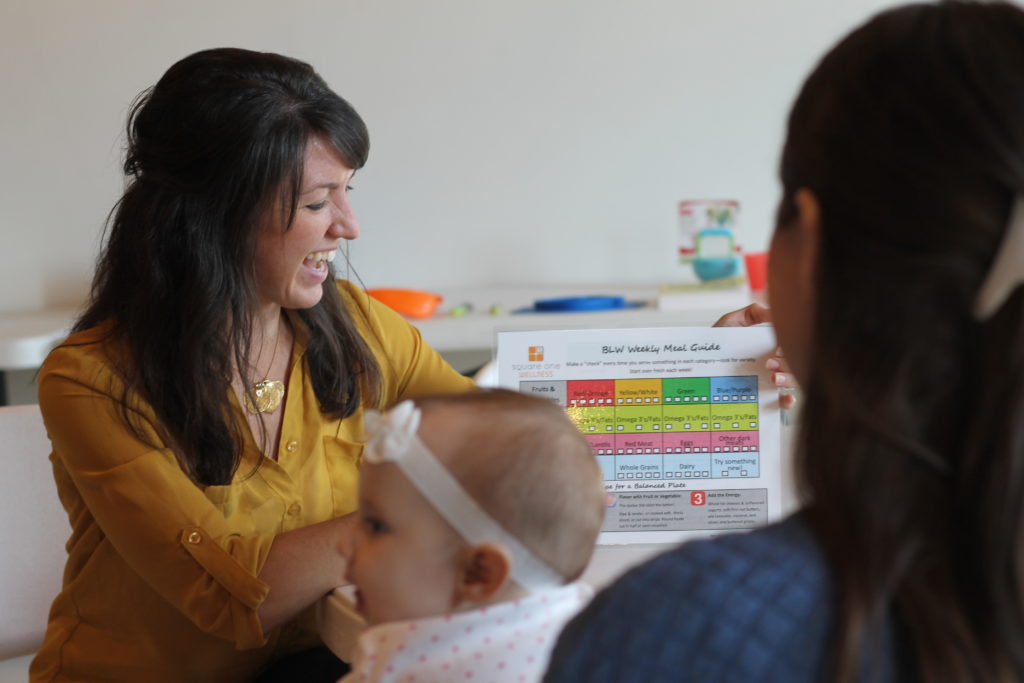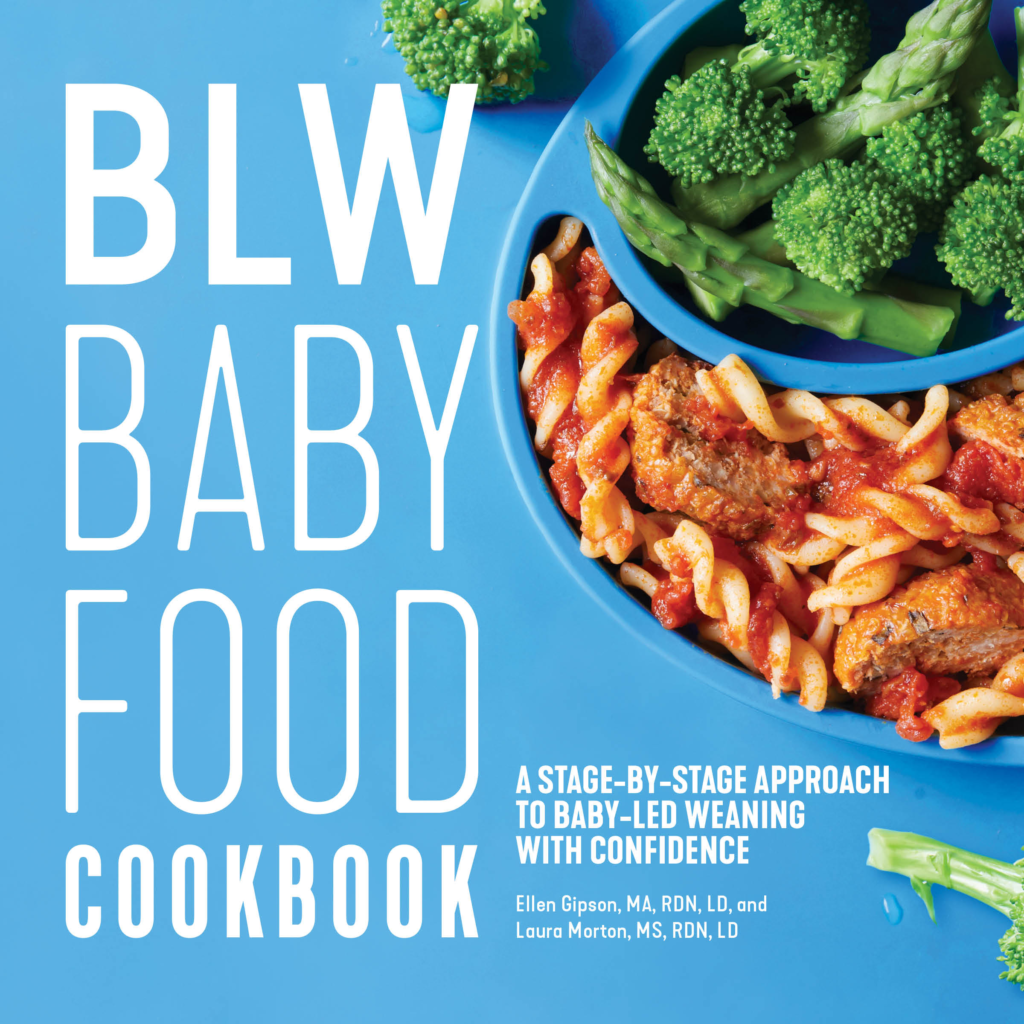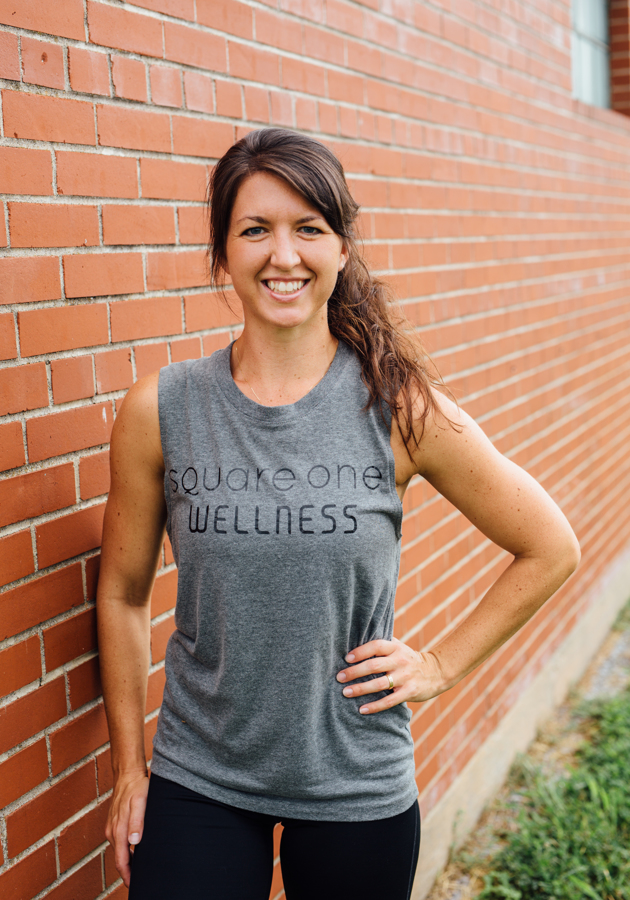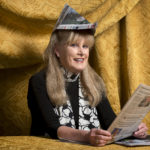Women do incredible things. Here, we feature the stories of women who are a part of the Southeast Missouri community by way of living here, being from here or passing through. We hope these stories inspire you to connect with others and that they encourage you to be who you are in the world. We need you and your unique gifts.
Ellen Gipson, MA, RDN, LD, first noticed children’s picky eating habits while working as a dietitian in school food service for the Jackson R-2 School District from 2013 to 2017. Ellen would bring foods like blueberries and cottage cheese into the classrooms for students to try; she says many of them had never eaten these foods before. This was alarming to her.
“These were not exotic foods; they were regular foods. But kids were very particular, and they had not had much exposure,” Ellen recalls. “So that kind of highlighted my senses that kids around me don’t know what food is or where it came from.”
Four and a half years into this job, Ellen gave birth to her daughter, Ruth, and decided she wanted to stay home with her. She quit her job to continue teaching fitness classes and began doing research on how she could prevent her daughter from becoming a picky eater. She found baby-led weaning, a school of thought that teaches parents to let their babies lead in the food discovery process, using their natural curiosity to taste whole foods when they are ready for them, to feed themselves and to trust babies’ natural instincts on portion size. After talking with her friend, Laura Morton, MS, RDN, LD, who was also a dietitian and using baby-led weaning with her own daughter, Ellen decided to give it a try.
“It’s more of a modern trending topic but it’s really if you talk to great-grandmas, very old school,” Ellen says. “It’s just, ‘Well, Baby ate what everybody else was eating because that’s all we had.’”
Ellen found out as she introduced whole, healthy foods to her daughter that Ruth was excited to see food and would grab the spoon when Ellen put food on it. Ellen began letting her daughter lead and feed herself; at eight months, she was eating corn on the cob, which Ellen jokes was “the happiest day of [Ruth’s] life.” As Ellen posted photos and videos on her social media accounts, other people started asking her how to do this, so Ellen decided to teach workshops on baby-led weaning at the Discovery Playhouse in Cape Girardeau. She also does home visits and consultations now with families to help them form healthy eating habits.
“A lot of people just don’t have the confidence to think they can do anything different than their parent did or what their aunt did, whoever they’re looking towards who’s giving them parenting advice,” Ellen says. “If you want to do something different, you can make a change. You want to do healthy food for your family, you can do that. It’s not impossible. You’re not destined to have a picky eater.”
Ellen, who resides in Cape Girardeau, earned her bachelor’s degree in nutrition dietetics from Southeast Missouri State University and did her internship at Saint Louis University. She earned her Master’s degree in Health Education from the University of Alabama and in February 2018 started her business, Square One Wellness, LLC, through which she teaches the workshops. She is also known as Zumba Ellen and teaches zumba classes for adults and children. These avenues allow her to pursue her goal of helping people make their lives healthier.
Now, Ellen can add “cookbook author” to her résumé, too. Her book “BLW Baby Food Cookbook: A stage-by-stage approach to baby-led weaning with confidence,” published by Rockridge Press, came out October 22, 2019. Ellen co-authored the book with Laura Morton, who first introduced her to the practice. After reading a story about her business that was published in the Southeast Missourian, the publishing company contacted her and asked her to write a cookbook about baby-led weaning. The book includes data-driven research that answers some of the most common questions Ellen hears from parents at her workshops, as well as healthy recipes for the whole family. Ellen says she wrote a chapter each week during her daughter’s naptime to meet the company’s deadlines.
“The main point with baby-led weaning is they’re joining in to the rest of the family’s mealtime. So with these recipes, these are family recipes that the baby can also enjoy along with us,” Ellen says. “These are not recipes for the baby only because that’s not baby-led weaning. … We’re focusing on the whole family eating healthy, nutritious foods.”
And that’s what it’s about, Ellen says: modeling for your children healthy habits they won’t have to break later in life.
“It’s really about establishing a norm from day one, ‘This is just what we’ve always done,’” Ellen says. “My bread’s always been brown, we never went through the drive-through and got a soda in the morning. … Don’t teach kids habits they’ll have to break. They’re a little mirror of whatever we’re doing. So if I’m going through the drive-through every morning getting a soda, whenever she gets to that age, she’s going to expect that. So thinking about what choices I am making right now because I’m going to have to undo that [if they’re negative].”
While our children learn from us, Ellen says we can also learn from our children’s “internal regulators,” as they can stop eating when they are satisfied even if they haven’t eaten the whole portion of a cookie, for instance. This can encourage us not to overeat and to eat whole, real foods, too.
Ultimately, Ellen believes health comes back to the basics of eating real food, drinking water and staying active.
“I consider myself kind of a nondiet dietitian because I don’t count calories, I don’t look at nutrition fact labels. I eat real food, I eat whole-fat foods, I eat a little bit differently,” she says.
It’s through teaching parents to eat and live like this, too, that Ellen hopes to help families help themselves along their journey to healthy lives.
Interested in knowing more? Check out Ellen’s cookbook here.





3 Comments